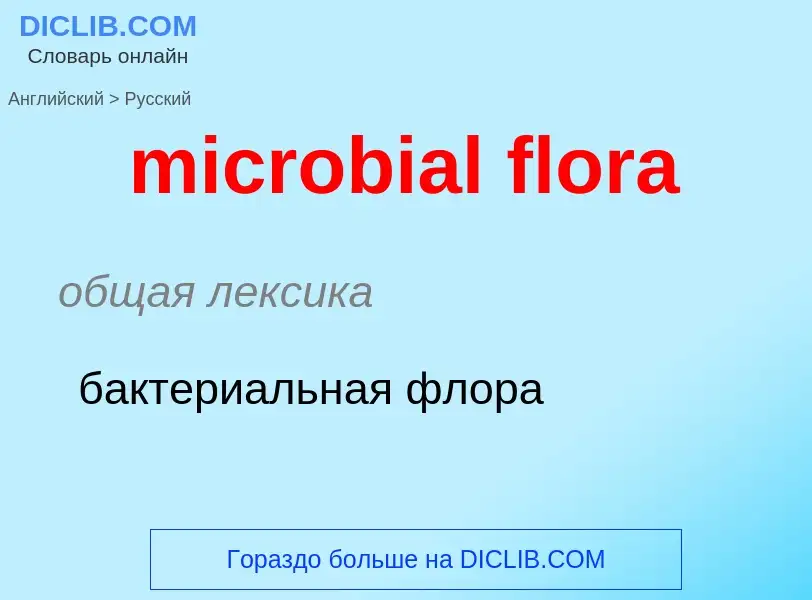Translation and analysis of words by ChatGPT artificial intelligence
On this page you can get a detailed analysis of a word or phrase, produced by the best artificial intelligence technology to date:
- how the word is used
- frequency of use
- it is used more often in oral or written speech
- word translation options
- usage examples (several phrases with translation)
- etymology
microbial flora - translation to russian
общая лексика
бактериальная флора
общая лексика
кишечная флора
медицина
кишечные бактерии
Definition
Wikipedia
In phytopathology, antagonism refers to the action of any organism that suppresses or interferes with the normal growth and activity of a plant pathogen, such as the main parts of bacteria or fungi.
These organisms can be used for pest control and are referred to as biological control agents. They may be predators, parasites, parasitoids, or pathogens that attack a harmful insect, weed, or plant disease or any other organism in its vicinity. The inhibitory substance is highly specific in its action, affecting only a specific species. Many soil microorganisms are antagonistic. They secrete a potent enzyme which destroys other cells by digesting their cell walls and degrade the cellular material as well as released protoplasmic material serves as a nutrient for the inhibitor organism, for example Aspergillus has an antagonistic effect on Penicillium and Cladosporium. Trichoderma has an effect on actinomycetes. Pseudomonas show antagonism on Cladosporiumsuch organism may be of great practical importance since they often produce antibiotics which modify the normal growth processes.


![''[[Candida albicans]]'', a dimorphic fungus that grows as a yeast in the gut ''[[Candida albicans]]'', a dimorphic fungus that grows as a yeast in the gut](https://commons.wikimedia.org/wiki/Special:FilePath/Candida albicans.jpg?width=200)
![[[Microfold cells]] transfer antigens (Ag) from the lumen of the gut to [[gut-associated lymphoid tissue]] (GALT) via [[transcytosis]] and present them to different innate and adaptive immune cells. [[Microfold cells]] transfer antigens (Ag) from the lumen of the gut to [[gut-associated lymphoid tissue]] (GALT) via [[transcytosis]] and present them to different innate and adaptive immune cells.](https://commons.wikimedia.org/wiki/Special:FilePath/Transvesicular transport by microfold cells.png?width=200)
